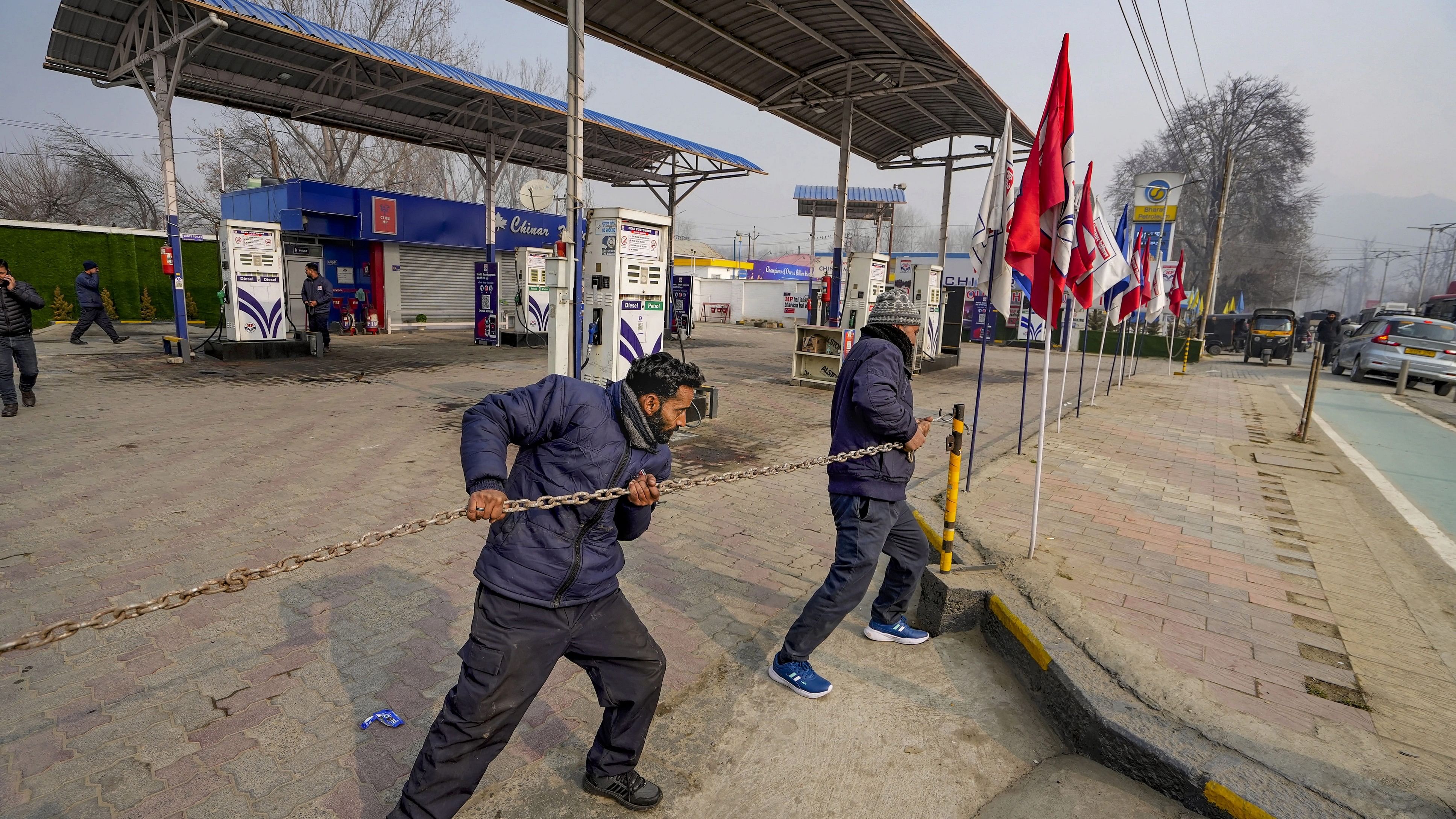
Staffers close a filling station in Srinagar amid a protest over new provisions regarding cases under Bharatiya Nyaya Sanhita.
Credit: PTI Photo
New Delhi: A driver who accidentally hits a person and subsequently informs police or takes the victim to the nearest hospital will not be prosecuted under the stringent provision of the recently enacted Bharatiya Nyaya Sanhita (BNS), a senior government functionary said on Tuesday.
According to the BNS, "Whoever causes death of any person by rash and negligent driving of vehicle not amounting to culpable homicide, and escapes without reporting it to a police officer or a magistrate soon after the incident, shall be punished with imprisonment of either description of a term which may extend to ten years, and shall also be liable to fine."
Dismissing as "misplaced" the apprehensions of some truckers, who are protesting against the new law and keeping off the roads, the functionary said the provision of hit-and-run cases will be applicable to only those drivers who will try to escape without the informing the police.
"The driver who informs police about the accident will not be prosecuted under the stringent law. If the driver fears that he will be attacked if he stops at the spot of the accident, he can go to the nearest police station or can call police or the toll free emergency helpline number 108 and inform about the accident," the functionary said.
In such cases, the driver just have to inform the police about the vehicle number, contact details and tell that he would cooperate in the investigation whenever required.
In such cases, the functionary said, the stringent provision of the law will not be applicable.
However, if the drivers runs away from the spot without informing the police, the strict provision of the law will be slapped.
Similarly, strong provision will be slapped in cases of drunken driving and subsequent accident.
The new provision of the hit-and-run cases where punishment has been extended to 10 years has been framed following the observation of the Supreme Court.
Sources said the Supreme Court had observed in several cases that drivers who drive negligently on the road, strict action should be taken against those who run away from an accident that results in someone's death.
Sub-section 106 (1) and sub-section 106 (2) of the BNS make it clear that if the person reports the incident of death by careless driving to a police officer or magistrate immediately after the incident, he will be charged under sub-section 106(1) instead of sub-section 106(2), which carries a punishment of up to five years, while sub-section 106(2) carries a punishment of up to 10 years.
Section 106 (1) offence is currently bailable and section 106(2) is non-bailable, sources said.
Truckers in several states launched a three-day protest against the "stringent provision" on Monday.
The petroleum dealers association has written to the government over the "panic buying" situation in fuel stations affecting stock supplies.